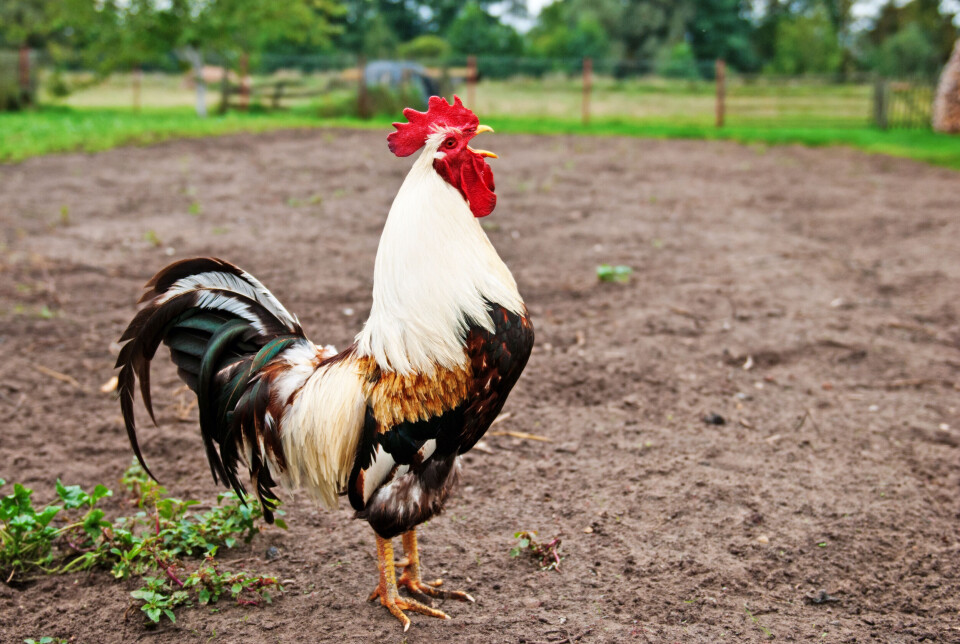-
White storks make strong return in France via nest ‘platforms’ and clipped wings
The Ligue pour la Protection des Oiseaux shares the conservation challenges in saving these birds from extinction
-
Hosting scheme in south-west France lets newcomers sample lifestyle
Households in nine Dordogne communes volunteer under Mes Nouveaux Voisins scheme
-
French boulangeries demand right for staff to work on May 1 so they can open
Artisan bakery owners can work but employees cannot, while certain industrial bakeries are allowed to remain open with workers
New French law will tackle ‘phoney’ rural noise complaints
It comes as France’s justice minister attacked the ‘urban mentality’ of some people moving to the French countryside

A new law is planned to make it harder for people who move to the countryside to complain about the noise.
Justice Minister Eric Dupond-Moretti said the idea is “a neighbour cannot complain about noise pollution which existed before they moved in”.
He singled out Parisians who move to rural areas and threaten to take legal action when a neighbour’s cockerel or a passing tractor prevents them from sleeping.
“The person who wants to reshape the countryside according to his urban mentality should not come and bother you with phoney lawsuits when you wake up early,” he said.
Read more: Hamlet’s ‘noisy’ cockerel can continue crowing, rules French court
Local population make complaints too
Much has been made of the so-called ‘urban exodus’ following Covid, with people quitting city life to move to the country.
A recent report from the Popsu research institution found the trend to be minimal, with most people moving to towns of a similar size or slightly smaller.
“Tensions have clearly been rising. However, this is not only linked to people who are new to the countryside, but the local population too,” said Cédric Szabo, director of the Association des Maires Ruraux de France.
“We have this idea of an urban-rural divide, but lots of villages are delighted to welcome new arrivals, some of whom have run for local office and are dedicated to serving the population.”
Protect countryside ‘sounds and odours’
This is not the first time politicians have attempted to solve this problem.
A 2021 law modified the environmental code so ‘sounds and odours’ would be considered part of France’s natural heritage.
The idea was to allow judges to take this into consideration when ruling on trials related to troubles anormaux de voisinage – nuisance caused to neighbours.
However, regional authorities say they have found it hard to implement as no clear guidelines of how to compile a list have been given.
Read more: French countryside sounds and smells to be protected by law
Preexisting ‘nuisance’ activities must be declared
In 2020, the prefecture and chambre des notaires in the Morbihan department created a clause to be inserted any time a property is sold, stating it is up to the buyer to verify any “activities, professional or otherwise, which take place in the immediate area” and which could be considered a nuisance.
At the time, the prefect said they received five to 10 letters per week, complaining about everything from noisy seagulls to the sound of sailing boat shrouds hitting against masts in the wind.
Some of the most outlandish complaints
2017: A dozen second-home owners in the Alpine village of Le Biot, including several Britons, signed a petition complaining about the noise of cowbells, but the local council decided the tradition could continue.
2018: The mayor of Le Beausset (Var) in the south of France revealed he had received complaints from tourists about noisy cicadas. They asked about spraying the trees with insecticide.
2019: A court ruled Maurice, France’s most famous cockerel, could continue crowing, much to the annoyance of the second-home owners on the Ile d’Oléron who had accused him of waking them up early in the morning.
2021: A Dordogne court ordered a couple in Grignols (Gironde) to drain their pond, after a neighbour complained the frogs living there were making too much noise.
Read more: Battle over frog noise in Dordogne not over
Related articles
Brittany crêperie taken to court... for smelling of crêpes
Old rural homes should be exempt from EU energy plan says French group
Grants up to €80,000 available to open shops in rural France
























